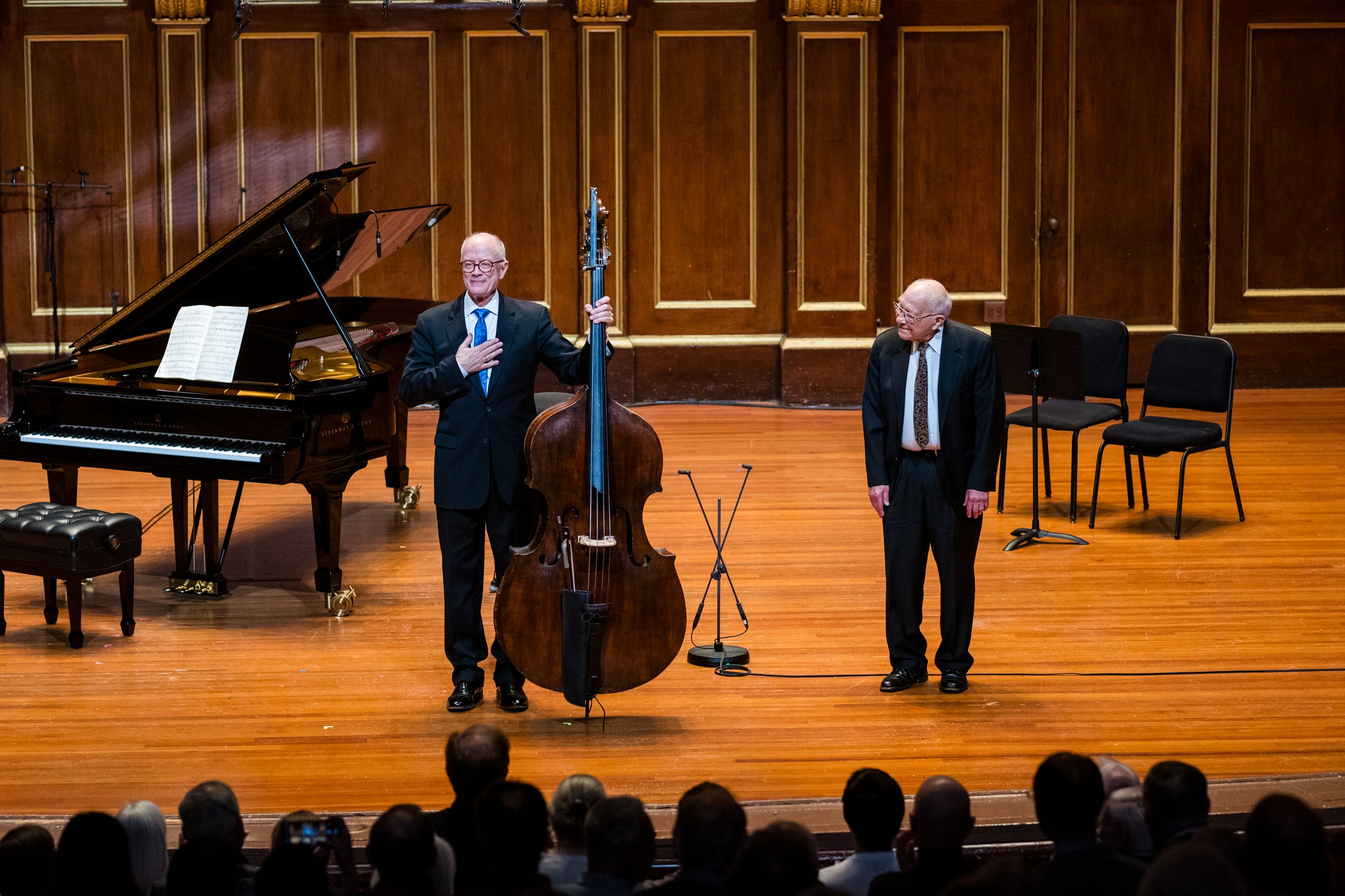Amanda Forsythe, looking back into the dark stage at Martin Pearlman and the Boston Baroque orchestra. Seems fitting. Longtime soprano soloist with Pearlman, Forsythe sang Ginevra in his last performances with the orchestra he founded.
Boston Baroque staged Handel’s Ariodante this weekend, a program that had to be cancelled in 2020. Only one soloist from the original cast made it to the actual production five years later, a dark note reminding everyone of the trenchant cruelty singers faced because of the pandemic.
Handel’s lengthy opera, part of an Orlando Furioso trilogy, still found a half-dozen singers around to execute his demanding coloratura score. Or Martin Pearlman did, for Handel.
It’s hard to judge a conductor’s ability to remain alert to a composer’s thoughts, but one feels that Pearlman always does, or tries to. This Ariodante marks his final program with the ensemble he founded in 1973. It was my honor to write a modest account of Pearlman’s history for this week’s Classical Voice North America.
Did you know Boston Baroque performed the first opera at the first Boston Early Music Festival, in 1981 (Poppea—Why didn’t that relationship continue)? Or that Pearlman could only rustle up eight period instrumentalists for his first concerts?
Look online at Boston Baroque, and you can see it’s all Pearlman. The notes, the performance history (the group has never had a guest conductor)—Pearlman even has online ornaments for singers. This is a half-century old ensemble that will be starting anew in many ways,
Boston Symphony Orchestra principal bass Ed Barker, retiring this month, at his final Chamber Players program earlier. With pianist Gilbert Kalish. Robert Torres photograph
The month-long Shostakovich overview, thoughtfully programmed to sell the just released hundred-dollar box set, seemed like a great way to end a sterling BSO season. I was happy at least to reconsider some of my old work for WBUR, two reviews that came out with the first couple of boxes (2016/017, the recordings that won Grammys).
Those reviews are here on this site, but the point for me was to remember that bunch of close listening, which I did. I had a thorough editor then, more than one, but led by Ed Siegel.
The 2025 part of the BSO season was especially considered, beginning with a Beethoven symphony survey in January and closing with a month of beautifully curated programs (Shostakovich/Stravinsky/Vrebelov).
But my cursory appraisals of late will be even moreso here. Medical inconveniences have been sapping any energy and lots of time.
Unremarked as well, goes the retirement of BSO principal bassist Edwin Barker, after five decades. I have enjoyed his music-making, and section leadership. It’s obvious from onstage dynamics that assorted conductors have as well, including Nelsons.
One audition, for Seiji, back in the ’70s, his BSO story goes as I remember it. Musicians don’t get symphony jobs like that anymore. Rockporters will remember Barker’s improvised solo piece in the sweltering heat of the Art Association, in the ’80s or ’90s. He never forgot it. Cheers and thanks.
See you soon, or so. Still hoping for Tanglewood, other festivals, maybe Banff later this summer. Health first.



